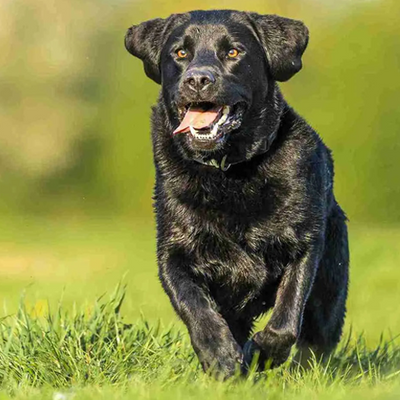The Boston Terrier Companion Guide
Quick take: Boston Terriers are friendly, intelligent, and adaptable companions known for their tuxedo-like markings, expressive eyes, and affectionate personality. They thrive in homes that offer companionship, moderate daily activity, and comfort-focused care suited to their compact build.
Want to explore more breeds? Visit the full hub here: Top 50 Purebred Dog Guide.
1. Introduction to the Breed
The Boston Terrier is a small companion breed celebrated for its balance of playfulness and calm affection. Often nicknamed the “American Gentleman,” Bostons are well-mannered, people-oriented dogs that fit easily into many lifestyles. They’re equally happy enjoying short play sessions or relaxing indoors with their family.
2. History of the Breed
Originating in the United States in the late 1800s, Boston Terriers were developed from a mix of bulldog- and terrier-type dogs. Over time, selective breeding refined their size, temperament, and appearance. Recognized by the AKC in 1893, the Boston Terrier became one of America’s first native companion breeds.
3. Physical Characteristics
Typical Size and Weight
Boston Terriers are small but sturdy dogs, typically standing 15–17 inches tall and weighing between 12–25 pounds. Their compact, muscular build supports moderate activity without requiring excessive exercise.
Coat and Color
They have a short, smooth coat that sheds lightly year-round. Common color patterns include black and white, brindle and white, or seal and white, giving them their signature tuxedo appearance.
Distinctive Features
A short muzzle, large expressive eyes, and upright ears define the Boston Terrier’s alert and friendly look. Their compact face contributes to their charm but also requires mindful care.
4. Personality Traits
Boston Terriers are affectionate, intelligent, and social. They typically get along well with children and other pets and enjoy being part of family activities. While playful, they’re not overly demanding and adapt well to calmer routines.
5. Care Requirements
Exercise Needs
Boston Terriers need moderate daily exercise—about 30–45 minutes per day. Short walks, indoor play, and interactive games keep them healthy without overexertion.
Grooming Needs
Their short coat is low maintenance and benefits from weekly brushing. Regular nail trims, ear checks, and dental care are important. Because of their short muzzle, they may be sensitive to extreme heat.
LibertyPaw Grooming Pick for Boston Terriers
A smooth, short coat benefits from a gentle grooming tool that removes loose hair without irritating sensitive skin. A quality comb keeps shedding minimal and grooming quick.
Shop Grooming Tool for Boston Terriers
Prefer browsing? Explore the full grooming lineup here: LibertyPaw Pet Grooming Products
Dietary Considerations
Boston Terriers do well on balanced, portion-controlled diets that support muscle tone and digestion. Because some are prone to weight gain, measuring meals and limiting treats is recommended.
6. Health and Lifespan
Boston Terriers typically live 11–15 years. Common health concerns include brachycephalic airway issues, eye injuries, allergies, and patellar luxation. Regular veterinary care and maintaining a healthy weight help support longevity.
7. Training and Socialization
Bostons are intelligent and generally eager to please. Positive reinforcement training works best, using short, engaging sessions. Early socialization helps ensure confidence around new people, dogs, and environments.
8. Ideal Home Environment
Boston Terriers adapt well to apartments, condos, and houses alike. They thrive in homes where they receive daily interaction and aren’t left alone for long periods. Climate-controlled environments are ideal due to their short muzzle.
9. The Best Dog Bed for a Boston Terrier
Boston Terriers benefit from a comfortable bed that supports joints and provides warmth and security.
A bolster-style bed allows them to curl up comfortably while offering gentle support.
Easy-to-clean materials are practical for everyday use.
For senior Boston Terriers, extra cushioning can help reduce stiffness and improve rest quality.
Find the Right Bed for Your Boston Terrier
10. What’s the Best Toy for My Boston Terrier?
Boston Terriers enjoy toys that encourage interactive play, light chewing, and bonding with their owners. Toys should be durable but not overly hard.
LibertyPaw Toy Picks for Boston Terriers
Toy Pick #1: LibertyPaw Plush Hydrant Dog & Cat Toy
Soft and lightweight, this plush toy is ideal for indoor play and gentle interaction.
Toy Pick #2: LibertyPaw RECON Camo Bone
A durable chew and light fetch toy that gives Boston Terriers a satisfying outlet without excessive strain.
Shop This Toy for Boston Terriers
Want more USA-made options? Browse the full toy collection: LibertyPaw American-Made Pet Toys
11. Adoption and Breeder Tips
When choosing a Boston Terrier, look for breeders who prioritize respiratory health, temperament, and eye care. Ask about health screenings and early socialization. Boston Terrier rescue organizations are also excellent options for adopting a friendly, adaptable companion.
Disclaimer: This breed guide is intended for general informational purposes only and does not replace professional veterinary advice, diagnosis, or treatment. Every dog is unique, and individual needs may vary based on age, health, activity level, and environment. Always consult a licensed veterinarian or qualified canine professional before making changes to your dog’s diet, exercise routine, grooming regimen, or health care.






0 comments